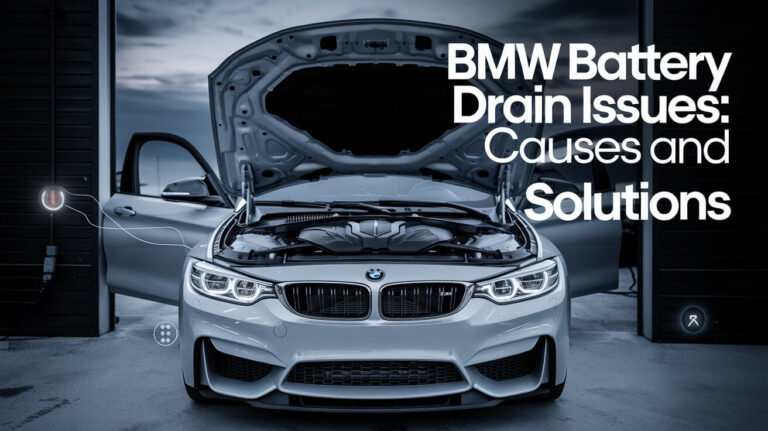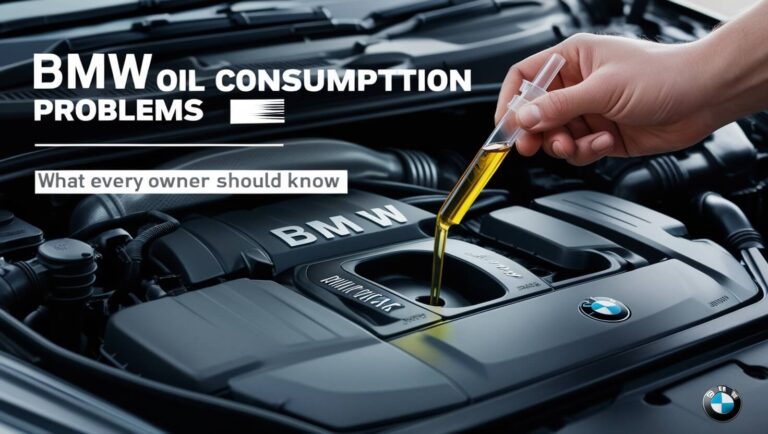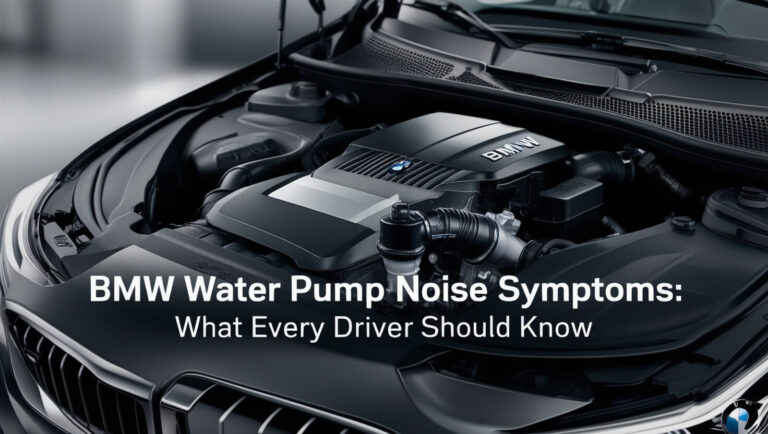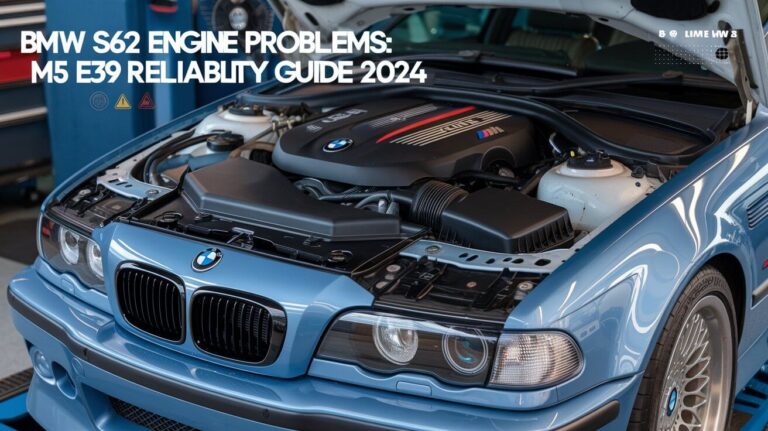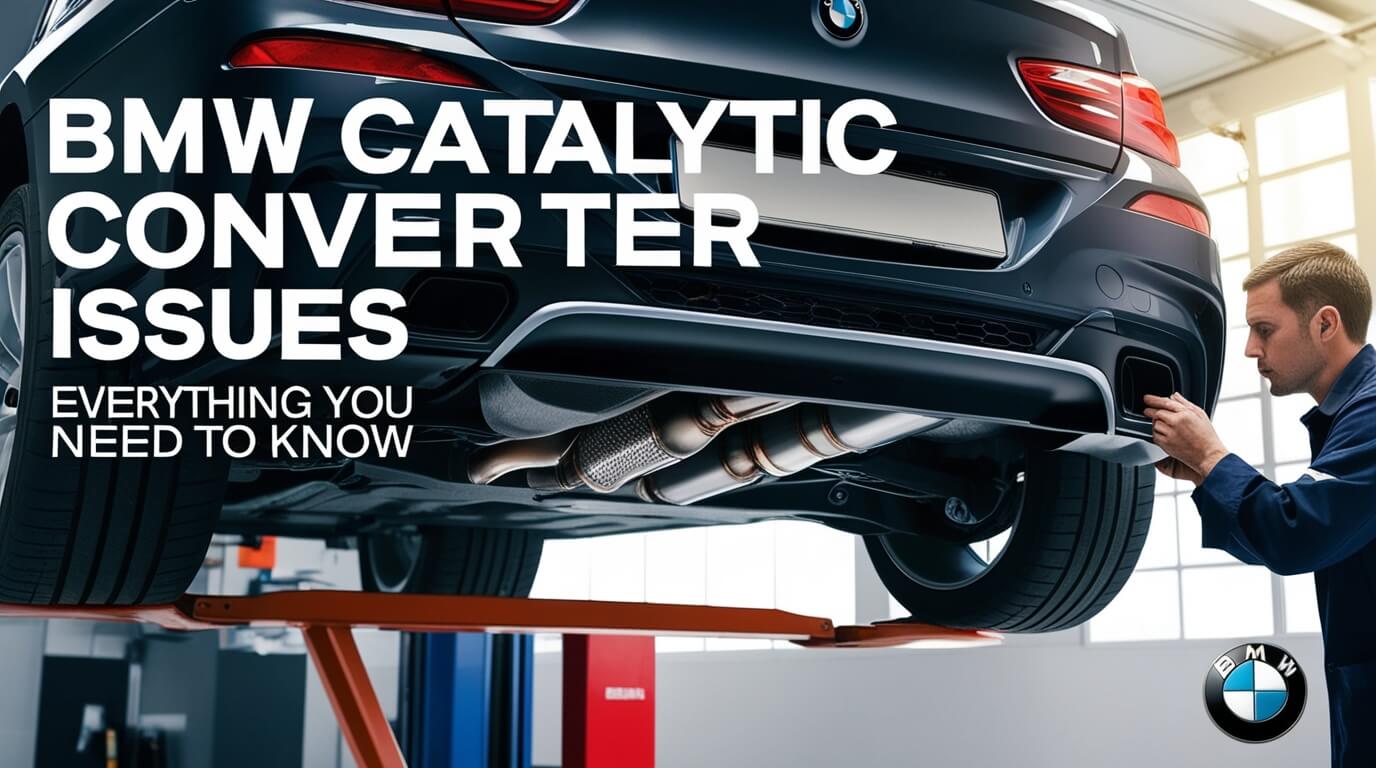
BMW owners often face challenges with their vehicle’s catalytic converters. These essential components can suffer from various problems, including physical damage, overheating, clogging, and age-related wear. Understanding these issues is crucial for maintaining your BMW’s performance and reducing environmental impact. This comprehensive guide explores the ins and outs of BMW catalytic converter problems, offering practical solutions and preventive measures.
Understanding the BMW Catalytic Converter
What is a Catalytic Converter?
A catalytic converter is a vital part of your BMW’s exhaust system. It’s designed to reduce harmful emissions by converting toxic gases into less harmful substances. Located between the engine and the muffler, this device plays a key role in keeping your BMW eco-friendly.
How Does a BMW Catalytic Converter Work?
BMW catalytic converters use precious metals like platinum, palladium, and rhodium as catalysts. These metals trigger chemical reactions that transform pollutants into less harmful compounds. As exhaust gases pass through, the converter changes carbon monoxide into carbon dioxide, hydrocarbons into water and carbon dioxide, and nitrogen oxides into nitrogen and oxygen.
Importance of Catalytic Converters in BMWs
Catalytic converters are more than just emissions control devices. They’re crucial for:
- Meeting environmental regulations
- Maintaining engine efficiency
- Ensuring your BMW passes emissions tests
- Preserving air quality in urban areas
Without a properly functioning catalytic converter, your BMW might fail emissions tests and contribute to air pollution.
Common BMW Catalytic Converter Problems
Physical Damage to BMW Catalytic Converters
BMWs, with their lower ground clearance, are prone to catalytic converter damage from road debris or impact. A dented or cracked converter can lead to:
- Reduced efficiency
- Unusual noises
- Exhaust leaks
Regular inspections can help catch physical damage early.
Overheating Issues in BMW Catalytic Converters
Overheating is a common problem for BMW catalytic converters. It often results from:
- Engine misfires
- Rich fuel mixture
- Faulty oxygen sensors
An overheated converter can melt internally, severely impacting its function.
Clogging and Contamination of BMW Catalytic Converters
Over time, BMW catalytic converters can become clogged or contaminated. Common causes include:
- Oil or coolant leaks
- Use of leaded gasoline
- Carbon buildup
A clogged converter restricts exhaust flow, leading to reduced engine performance and fuel efficiency.
Age-Related BMW Catalytic Converter Problems
Even with proper care, BMW catalytic converters wear out. Most last about 10 years, but factors like driving habits and environmental conditions can shorten their lifespan.
Signs of BMW Catalytic Converter Issues
Check Engine Light Activation
A glowing check engine light is often the first sign of catalytic converter problems in BMWs. While it doesn’t always mean converter issues, it’s a key indicator that shouldn’t be ignored.
Reduced Engine Performance in BMWs
If your BMW’s catalytic converter is failing, you might notice:
- Sluggish acceleration
- Reduced power output
- Difficulty starting the engine
These symptoms often worsen over time if left unaddressed.
Unusual Exhaust Odors from Your BMW
A faulty catalytic converter can produce a distinct smell:
- Rotten egg odor (sulfur)
- Burning smell
These odors indicate that the converter isn’t properly processing exhaust gases.
Increased Fuel Consumption in BMW Models
A malfunctioning catalytic converter can cause your BMW to guzzle more fuel. If you’re filling up more often, it might be time to check your converter.
Failed Emissions Tests for BMWs
BMWs with catalytic converter issues often fail emissions tests. Regular testing can catch problems early, saving you from more extensive repairs down the line.
Diagnosing BMW Catalytic Converter Problems
Professional Diagnostic Tools for BMW Catalytic Converters
Mechanics use specialized tools to diagnose BMW catalytic converter issues:
- OBD-II scanners
- Exhaust gas analyzers
- Pressure testers
These tools provide accurate readings of converter performance and efficiency.
DIY Methods to Check BMW Catalytic Converter Health
While professional diagnosis is best, there are some DIY checks you can perform:
- Listen for rattling sounds
- Check for visible damage
- Monitor fuel efficiency
Remember, these methods aren’t foolproof, but they can give you an initial idea of your converter’s condition.
Importance of Timely Diagnosis for BMW Catalytic Converters
Early detection of catalytic converter issues can save you money and prevent more serious engine problems. Don’t ignore warning signs – prompt diagnosis is key to maintaining your BMW’s health.
Fixing BMW Catalytic Converter Issues
Cleaning BMW Catalytic Converters: Pros and Cons
Some BMW owners consider cleaning their catalytic converters. While it can sometimes help with minor clogs, it’s not always effective for serious issues. Pros include:
- Potentially lower cost than replacement
- Can extend converter life in some cases
Cons include:
- Not always effective
- May not address underlying issues
Replacing BMW Catalytic Converters: When Is It Necessary?
Replacement becomes necessary when:
- The converter is physically damaged
- Cleaning doesn’t resolve the issue
- The converter is beyond its serviceable life
Always opt for OEM or high-quality aftermarket converters to ensure proper fit and function.
Cost Considerations for BMW Catalytic Converter Repairs
BMW catalytic converter repairs can be pricey. Factors affecting cost include:
- BMW model and year
- Converter type (OEM vs. aftermarket)
- Labor costs in your area
While it’s tempting to cut corners, investing in quality repairs can save money in the long run.
Preventing BMW Catalytic Converter Problems
Regular Maintenance Tips for BMW Catalytic Converters
Preventive care is crucial for BMW catalytic converters. Key maintenance tips include:
- Regular oil changes
- Timely spark plug replacements
- Keeping fuel and ignition systems in top shape
These steps help prevent contaminants from reaching the converter.
Driving Habits That Protect BMW Catalytic Converters
Your driving habits can impact converter lifespan. To protect your BMW’s converter:
- Avoid short trips that don’t allow full warm-up
- Don’t ignore check engine lights
- Avoid overloading your vehicle
These habits reduce stress on the catalytic converter, extending its life.
Choosing the Right Fuel for Your BMW
Using the right fuel is crucial for catalytic converter health. Always use:
- The recommended octane rating
- High-quality fuel from reputable stations
- Fuel additives sparingly, if at all
Quality fuel helps prevent buildup and contamination in your converter.
BMW Catalytic Converter Theft: A Growing Concern
Why Are BMW Catalytic Converters Targeted by Thieves?
BMW catalytic converters are increasingly targeted by thieves due to:
- High precious metal content
- Ease of access in some models
- High resale value in black markets
This trend has become a significant concern for BMW owners.
Protecting Your BMW from Catalytic Converter Theft
To safeguard your BMW’s catalytic converter:
- Park in well-lit or secure areas
- Install anti-theft devices
- Consider etching your VIN on the converter
These measures can deter thieves and increase the chances of recovery if theft occurs.
What to Do If Your BMW’s Catalytic Converter Is Stolen
If your BMW’s catalytic converter is stolen:
- Report the theft to the police
- Contact your insurance company
- Have your vehicle towed to a reputable mechanic
Quick action can help with recovery and prevent further damage to your BMW.
Environmental Impact of BMW Catalytic Converter Issues
How Faulty BMW Catalytic Converters Affect Emissions
A malfunctioning catalytic converter in your BMW can lead to:
- Increased harmful emissions
- Failed emissions tests
- Contribution to air pollution
Keeping your converter in good shape isn’t just good for your car – it’s good for the environment.
BMW’s Efforts in Reducing Catalytic Converter-Related Pollution
BMW is actively working to improve catalytic converter technology. Their efforts include:
- Developing more efficient converter designs
- Using advanced materials for longer-lasting converters
- Implementing stricter quality control measures
These initiatives aim to reduce emissions and improve converter longevity.
Future of BMW Catalytic Converters
Technological Advancements in BMW Catalytic Converters
BMW is at the forefront of catalytic converter innovation. Future developments may include:
- Self-regenerating converters
- Smart converters with real-time monitoring
- More durable and efficient designs
These advancements promise to make BMW catalytic converters more effective and longer-lasting.
Electric BMWs and the Future of Emissions Control
As BMW shifts towards electric vehicles, the role of catalytic converters is changing. While EVs don’t need traditional converters, BMW is exploring:
- New emissions control systems for hybrid models
- Alternative pollution reduction technologies
- Sustainable manufacturing processes for converter components
This evolution reflects BMW’s commitment to environmental responsibility.
Maintaining Your BMW’s Catalytic Converter for Optimal Performance
Keeping your BMW’s catalytic converter in top shape is crucial for performance, efficiency, and environmental responsibility. Regular maintenance, prompt attention to issues, and understanding the signs of converter problems can save you money and hassle in the long run. As BMW continues to innovate, staying informed about catalytic converter technology will help you make the best decisions for your vehicle’s care. Remember, a well-maintained catalytic converter not only keeps your BMW running smoothly but also contributes to cleaner air for everyone.

